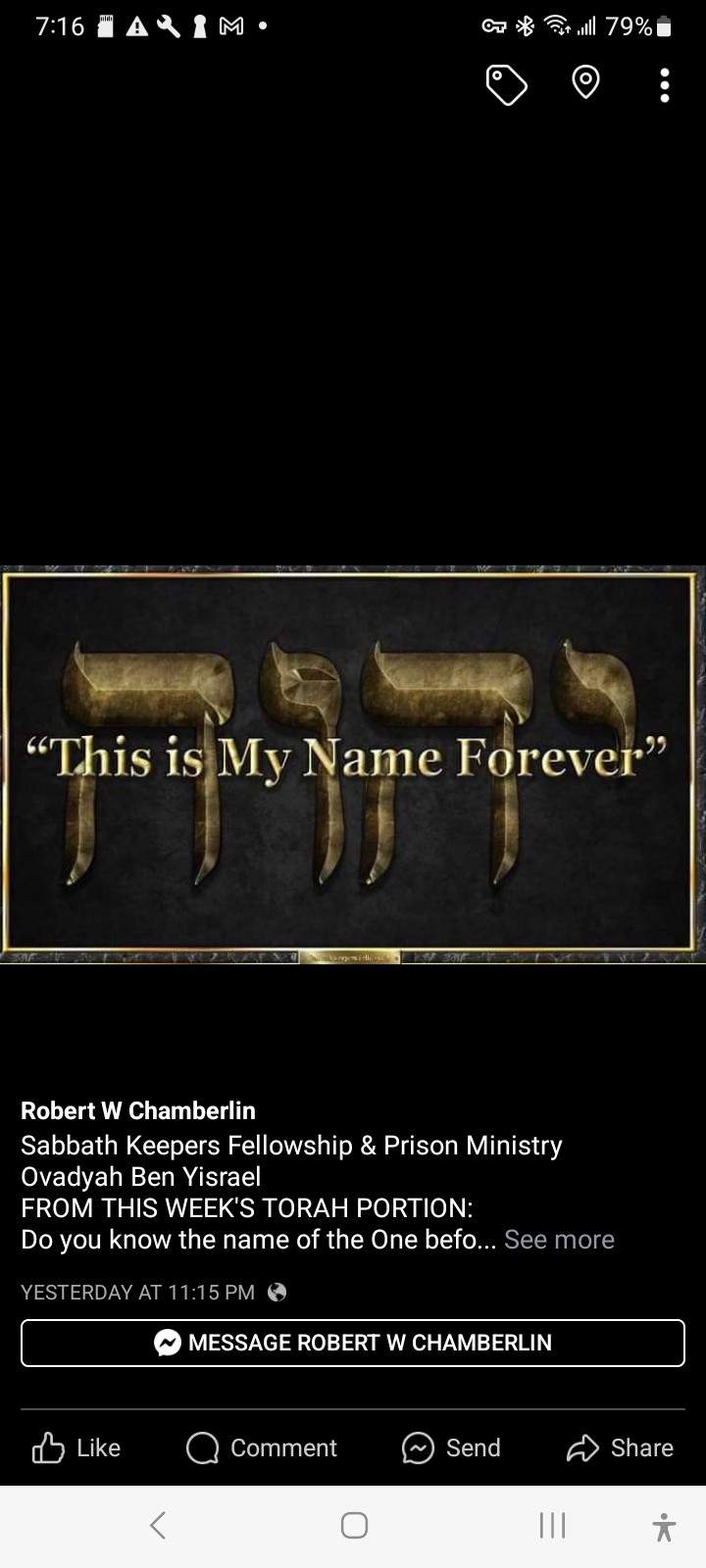Watch
Events
Articles
Market
More
Sabbath Keepers Fellowship & Prison Ministry
Ovadyah Ben Yisrael
FROM THIS WEEK'S TORAH PORTION:
Do you know the name of the One before whom you stand?
“And Moshe said to Elohim, ‘See, when I come to the children of Yisra’ĕl and say to them, The Elohim of your fathers has sent me to you, and they say to me, “What is His Name?” what shall I say to them?’ And Elohim said to Moshe, ‘I Exist that I Exist' (אהיה אשר אהיה). And He said,’ Thus you shall say to the children of Yisra’ĕl, ‘He who Exists (יהוה) has sent me to you.’ And Elohim said further to Moshe, ‘Thus you are to say to the children of Yisra’ĕl, “YHWH, Elohim of your fathers, the Elohim of Aḇraham, the Elohim of Yitsḥaq, and the Elohim of Ya‛aqov, has sent me to you.” This is My Name forever, and this is My remembrance to all generations.’”
(Exist = היה/הוה)
(I = א)
(He, or He shall =י)
“I am YHWH (יהוה), that is My Name, and My glory I do not give to another.”




We had a group discussion today about baptism, Acts 2, and the requirements for salvation. One of our friends who is educated in Koine Greek joined and explained the words for baptism in detail. Please give us a like and share! And feel free to join our discussions each Shabbat!
https://firstcenturychristiani....ty.net/the-recipe-fo



Here's the Sabbath sermon for 1/6/24, called "Answering the Call": https://firstfruits.cc/blog/20....24/01/06/answering-t



https://www.bitchute.com/video/3QpCDtG2CngD/



Another question:
Sometimes, I see it showing 2 comments, but when I click on comments I only see 1. Should I assume it means a comment is hidden because either 1 blocked someone or they blocked me?
Rhy Bezuidenhout



https://rumble.com/v45gyjl-sha....bbat-music-livestrea



Apologies to everyone, including Abigail for the inapropriate emojis. My thumbs never aim right on my phone!


